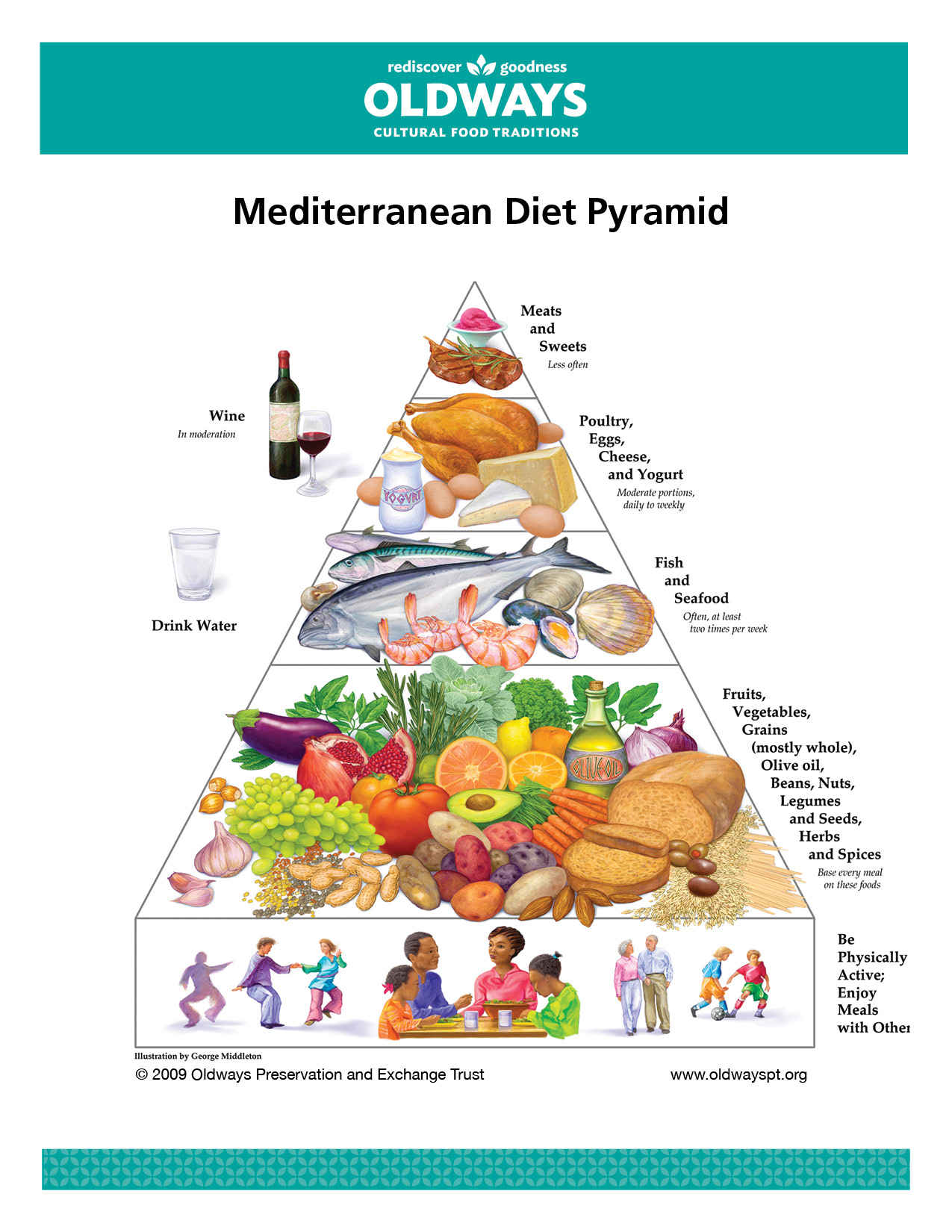Many people hear about the Mediterranean Diet from their doctors. Whether for weight loss, better nutrition, or to reduce the risk of cardiovascular disease and diabetes, doctors frequently recommend it to their patients.
But what does that mean? When a doctor “prescribes” a lifestyle change like the Mediterranean Diet, it can be hard to know where to start. Here are five tips.
1. Understand the basics
The Mediterranean Diet is all about preparing simple and wholesome food, being active, and sharing meals with friends and family.
This is not your typical “diet.” There are no rigid food rules, or counting calories or macronutrients. Nothing is “off-limits” or strictly portioned. Instead, follow the food pyramid as a general guide. Think of eating:
- More fruits and vegetables, beans, seafood, and whole grains (such as rice, oats, whole wheat pasta, and whole wheat bread).
- Less: meat (especially red meat), butter, sugar, soda, and snack foods. Save these foods for special occasions. Have dairy, eggs, and chicken up to a few times per week.
2. Follow a plan
Don’t feel overwhelmed! The Mediterranean Diet is a very flexible way of eating, but it can be helpful to have a meal plan to follow as you get started.
The 4-Week Mediterranean Diet Menu Plan Book takes the guesswork out of healthy eating. It guides you through 28 days of breakfast, lunch, and dinner recipes so you can be sure you’re on the right track.
Spicy Salmon, Whole Grain Spaghetti with Pesto, and Sheet Pan Chicken with Sweet Potatoes are some of the meals you can add to your new repetoire!
3. Get ready to cook
On the Mediterranean Diet, you will cook for yourself, from whole ingredients, as often as you can. Packaged meals and highly-processed products are often filled with too much sugar, salt, and unhealthy fat.
Don’t worry: Many Mediterranean meals can be made in 30 minutes or less, and the food is not expensive or hard to find.
Stay motivated to cook with Fresh Fridays, our biweekly email newsletter. Each issue includes a blog post with information about healthy eating, plus three recipes to make at home.
Subscribe for Mediterranean Diet Tips
4. Have patience
Don’t be discouraged as you wait to see results from the Mediterranean Diet. It is not a shortcut to weight loss-it’s a roadmap to long-term healthy living.
Some diets cut out entire food groups, severely limit portion sizes, or require you to obsess over numbers. This may lead to rapid weight loss, but it is not a feasible (or enjoyable!) plan for the long term.
The Mediterranean Diet offers a wide variety of foods, exciting flavors, and the flexibility to enjoy treats now and then. When you follow the principles of the Mediterranean Diet, you’ll find yourself on a pathway to health, and you’ll be able to enjoy the journey, too.
Remember that slow, gradual progress = sustainable progress!
Learn the Facts on Our Health Studies Page
5. Get support
The best way to stay motivated and excited about a new lifestyle change is to connect with others on the same path. The Make Every Day Mediterranean Facebook group is a community of thousands. Share your successes and failures, learn from others, find new recipes, and ask questions.
In traditional Mediterranean communities, mealtimes were not just about nourishment, but also about connection. Today, we are learning that a person’s overall happiness and physical well-being is heavily related to whether they belong to a strong community. Share your meals around the table, go for a walk with a friend, and stay involved in groups and communities. It’s good for your health!








